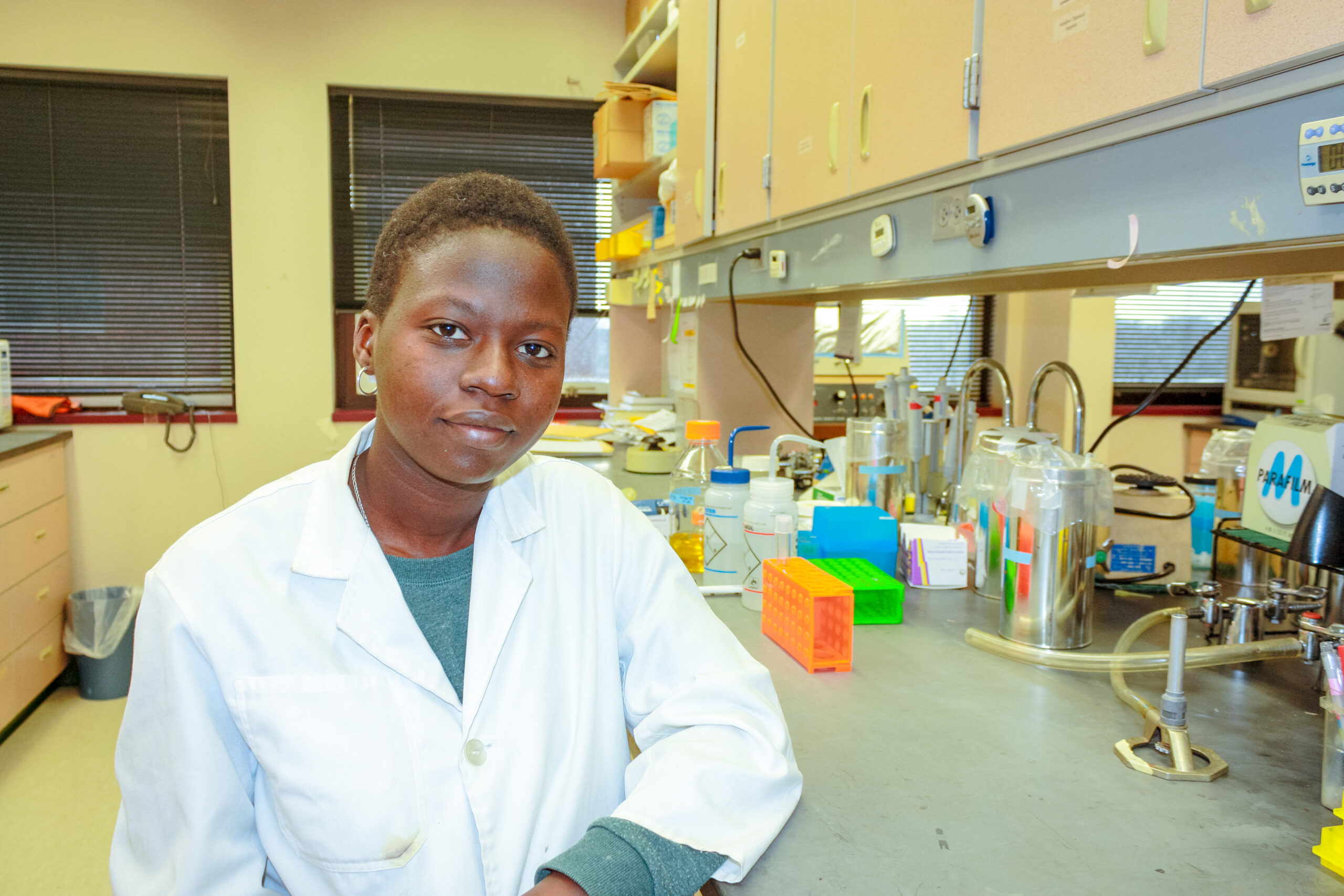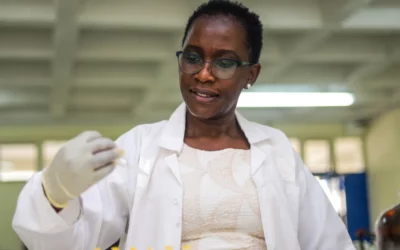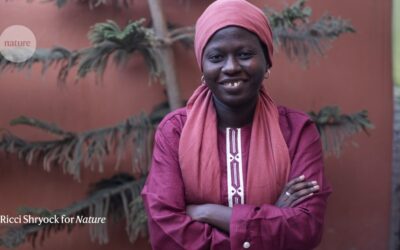By leral.net
Khadidiatou Sall, PhD in molecular and cellular biology: The discoverer of genes allowing plants to tolerate drought, cold and saltolerer, dryness.
The young Senegalese scientist based in the United States is a well-known figure in the field of Dna and Arn sequencing. The biologist, born in Ouakam, has discovered several genes that allow plants to grow in the desert, in a salty environment and to resist the effects of climate change. His work raises all the hopes within the scientific community for the challenges of modern times.
The founder of Ouakam’s Science education exchange sustainable development (Seesd) is not a philosopher. But her reasoning is philosophical. The discourse of the scientist is a sequence of questions. Unlike philosophers, scientists provide answers. They take their positions. She does not believe that the conditions are right in Africa to put molecular biology at the service of Africa’s development.
“Africa will not be able to benefit from disciplines like science and molecular biology. To do a training in molecular biology, I had to leave Senegal; this shows a lack of investment in the education of young people. Available training and often laws and policies are not adapted to take advantage of the most innovative fields in science and technology” says the biologist. Changes are needed if the continent is not to remain in an eternal position as a consumer or importer of technology.
Moreover, it was the absence of conditions that led the Ouakam native to leave Senegal to continue her studies at the Sorbonne University in France, before landing at the University of Oregon in the United States. The results of his research are very important for humanity and especially for countries threatened by the advance of the desert.
The Senegalese is the author of the discovery of many genes allowing plants to resist the desert, floods, the effects of climate change. Ownership of the findings of its work can contribute to the re-greening of deserts, the fight against food insecurity and the mitigation of the effects of climate change.
“During my doctoral studies, I worked on plants and seeds. Plants, like humans, contain hormones. Specifically, I was interested in a hormone called Abscisic Acid (Aba). This hormone is very important in plants because it tolerates natural phenomena such as drought, floods, salt, cold, disease…” , says the scientist. She is in the infinitely small since she focuses her work on hormones and especially on the sequencing of Dna and Arn.
Absence in the field of molecular research
Sall has made a name for herself in the future of research. Through her work, she can predict the germination of a plant based on the hormone Aba or Abscisic Acid. “It also helps define when a seed should germinate. My goal was to find out how this hormone allowed the plant to be tolerant of these phenomena at the molecular level. For example, what genes did this hormone affect that would allow the plant to withstand drought or other conditions?
To do that, I’ve done a lot of work in the area of Dna sequencing, Arn sequencing, and also genetic engineering, which is to modify the Dna and create genetically modified organisms. Thanks to my research, I discovered new genes for this hormone, which allowed the plant to be more vigorous,” the biologist said.
She regrets that countries like ours, faced with new challenges, are absent from the field of molecular research. This discipline offers us every opportunity to rise to another level of development. “Senegal is a country threatened by the advance of the Sahara desert. We should be champions in this field of research and create drought-resistant plants. Is that the case? No! As long as research and development is relegated to the back burner, we will not benefit from anything,” claims the scientist, who is not content to criticize.
It is contributing to the construction of an Africa focused on science, technology and innovation. Holder of a Bachelor’s degree in Biology, a Master’s degree in Biochemistry and a PhD in Molecular and Cellular Biology, the researcher has been involved in the promotion of science through SeeSD, an organization she launched in Dakar in 2016.
At its centre in Ouakam, the instructors instill a taste for science, technology and innovation in young people through practical experiences. One of her wishes is to see more young Africans embrace the scientific fields. “I want more women in science. Today they are under-represented in science,” said Khadidiatou Sall, winner of All Bar None, awarded by One young world, and another prize from the American Society of Plant Biology. She has also published several scientific articles in the world’s leading journals.





